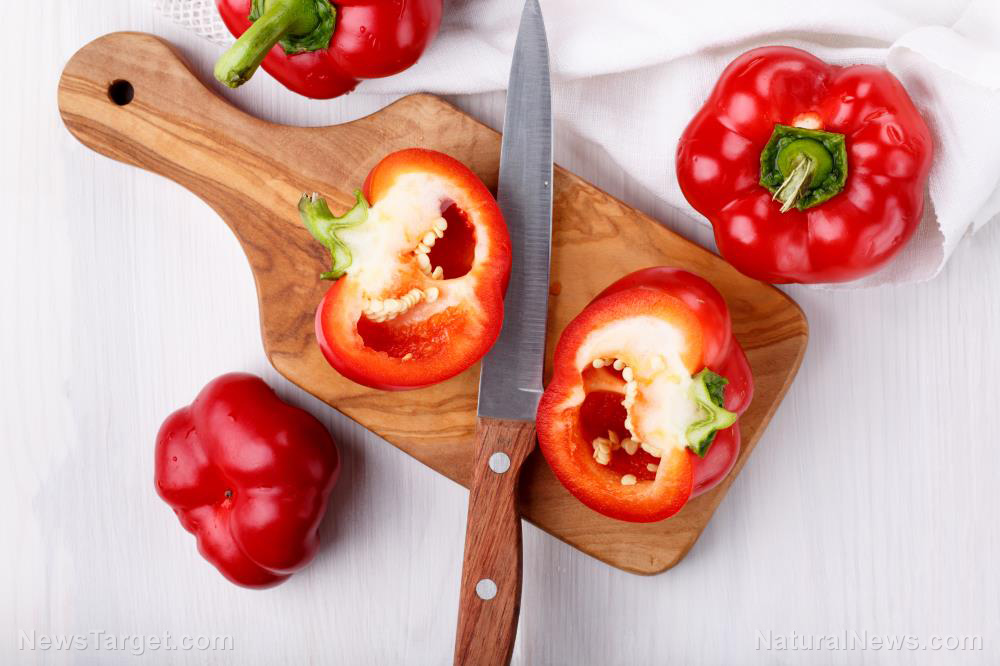
Advertisement
Chopping vegetables enables the immediate release of beneficial nutrients and enzymes that support proper digestion. A nutritionist explained that chopping fruits and vegetables before consumption releases important substances locked inside them. She added that the process is an improvement to how the teeth works when chewing food. However, the nutritionist warned that chopped vegetables should be consumed immediately.
New York nutritionist Carly Feigan told The Daily Mail that chopping vegetables releases their nutrients faster. “It’s always good to have the vegetables broken down because that’s what our teeth do. We can start that process sooner before they hit our tongue and get the enzymes going,” she remarked.
Slicing or chopping vegetables before consumption releases nutrients such as vitamin C and potassium. It also releases polyphenols, which are compounds responsible for plants’ certain color and the bitter taste of some vegetables. These polyphenols in turn produce antioxidants, which protect the body from harmful free radicals and address the damage caused by oxidative stress.
A study found that chopping specific vegetables can boost their antioxidant levels by almost 200 percent. However, these same enzymes released when vegetables undergo slicing are the same ones responsible for turning them brown when exposed to air. The process is known as enzymatic browning and is seen in fruits such as apples and avocados.
To stop enzymatic browning in vegetables and fruits, they are commonly tossed in lemon juice. Lemon juice inactivates polyphenol oxidase, the enzyme that responds to oxygen and causes fruits and vegetables to brown.
Another way to stop enzymatic browning in vegetables and fruits is to keep them refrigerated after cutting. This reduces the amount of enzymes that react to oxygen, turning produce brown. But Feigan warned that leaving sliced fruits and vegetables uneaten for too long also deprives them of important nutrients. Slicing through the cell walls of vegetables stops the movement of water-soluble nutrients like vitamin C and folate. Thus, produce that remains uneaten after slicing end up losing more nutrients.
“If you eat the chopped vegetables immediately, you get the benefit of having those nutrients abundantly available,” she advised.
Feigan elaborated that while slicing fruits and vegetables with a knife releases their enzymes, our teeth will do the rest of the work. “If you don’t chop them first and chew them really well, you can still get the same benefits. But if the vegetables aren’t being broken down fully with our teeth, the chopping process could actually get those nutrients out of the food for you,” she said.
The same concept also applies to fresh juices – the sooner you drink them, the better
Feigan said the same concept of sliced fruits and vegetables slowly losing their nutrients also applies to smoothies and juices.
According to a study conducted in December 2014, vegetables can lose 15 to 55 percent of their vitamin C content within a week. It added that spinach can lose up to 90 percent of its vitamin C content within the first 24 hours after harvest.
“If you leave a smoothie around for three hours, you’re not going to get the benefit from it,” Feigan said. The nutritionist gave an example: Nutrients in freshly squeezed orange juice evaporate after a short 30 seconds. Thus, it is important to drink smoothies and juices made from fresh produce immediately if you wish to absorb the maximum amount of nutrients it has.
But even juicing itself appears to have drawbacks. Experts told The Daily Mail that the risks of juicing outweigh its purported benefits. Juicing fruits and vegetables extracts the skin and most of their fiber. Unfortunately, most of the important nutrients can be found in the skin and fiber of fruits and vegetables.
The juice itself subsequently has a lower nutrient content and does not offer the same health benefits as eating whole fruits and vegetables. Since juices don’t contain fiber, they do not make you feel full compared to solid foods – which subsequently triggers overeating.
Ultimately, it is best to avoid pre-slicing fruits and vegetables unless you plan to eat them immediately. That way, you taste them in their peak freshness without losing the important nutrients. You also avoid food wastage as you only eat the amount of fruits and vegetables you can finish.
Visit Fresh.news and learn the benefits of eating fruits and vegetables at their freshest.
Sources:
Extension.Purdue.edu [PDF]
Advertisements







